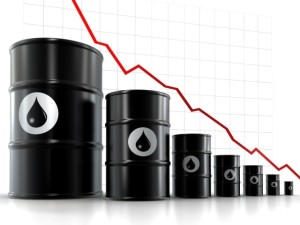Less than a week after the Organisation of Oil Exporting Countries (OPEC) agreed to a production cut for its members, oil prices have begun to decline.
OPEC announced a 1.2 million barrels per day (mbpd) production cut at its 171st meeting in Vienna, on November 30.
After the announcement, oil prices rose to a 16-month high, with Brent crude trading at $55.33 per barrel on the international market and US West Texas Intermediate (WTI) trading at $52.42 per barrel.
The spike in prices occurred barely 48 hours after Ibe Kachikwu said that the healthy oil prices for Nigeria would from $54 to $56 per barrel.
“I mean, if we have a Santa Claus day, then 60. But frankly, looking more to mid-50,” he had said.
Five days after the announcement, oil prices have begun a downward movement.
Brent crude traded at $53.85, losing $1.48 and US West Texas Intermediate (WTI) trading at $50.72 on the international market.
Mohammad Barkindo, secretary-general of OPEC, is seeking collaborations with non-OPEC producers, saying everyone involved in the oil sector has a lot to lose if they do not work together.
“Low prices achieved only one thing: they dramatically choked off investments. Research and development spending was reduced. And drastic cost-cutting strategies were put into place across the board,” he said.
“But nothing can be taken for granted, and we must continue to work together: producers and consumers, OPEC and non-OPEC producers, and those working in the upstream as well as the downstream. We all have something to gain by working together – and much to lose if we do not.”
A joint ministerial level meeting with non-OPEC countries will be held on December 10 at the OPEC secretariat in Vienna – the first such meeting since 2002.
Copyright Ships & Ports Ltd. Permission to use quotations from this article is granted subject to appropriate credit given to www.shipsandports.com.ng as the source.
